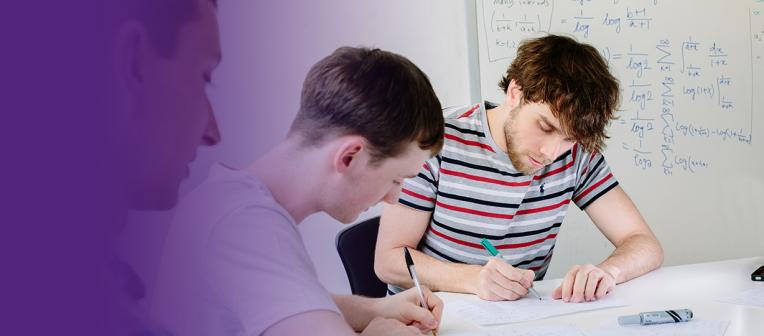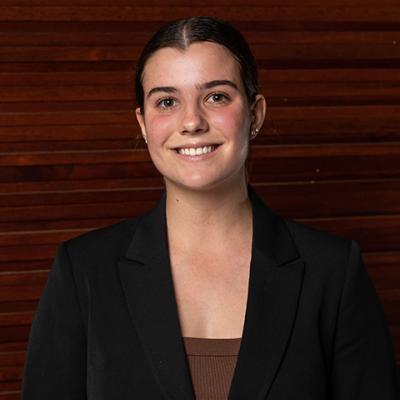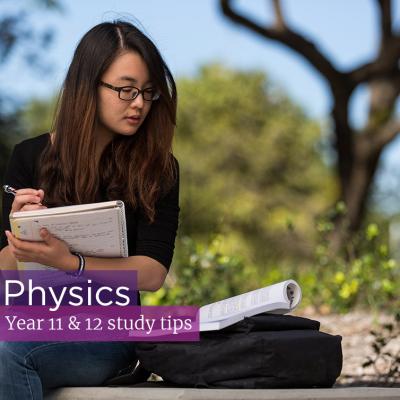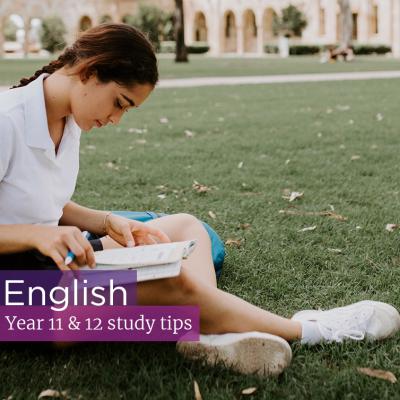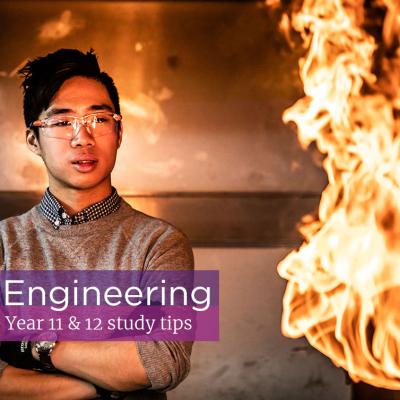Maths subjects – especially Specialist Mathematics – have a reputation for scaling well. But they’re also notorious for being downright difficult.
If you’re going after a high ATAR, or even if you just love working with numbers, there are good reasons to select Mathematical Methods, Specialist Mathematics, or maybe even both. But it’s going to take some serious work to get the grades you want.
Here are some maths study tips from UQ students Zoe Cumming, Aditya Neurgaonkar, Penelope Spears and Emily Nilsen. They all excelled at these subjects in 2020-21 and got the 99.9+ ATARs to prove it.
Respect the difficulty
Specialist Mathematics can be intimidating, even if you’ve performed well in high school maths so far. As such, you’ll want to think about this subject first when planning your study schedule. All our students echoed this warning.
“Specialist Maths has a reputation for being the most difficult subject someone can take in Year 12, and honestly, I think this is probably true,” says Emily.
However, it’s not all an uphill battle. Putting in the effort to master Specialist Mathematics can reward you – and not just with high ATAR potential. Specialist Maths can also provide clarity and deeper understanding in some of your other subjects, such as Mathematical Methods, Physics and Engineering.
“Specialist is by nature a difficult subject, so I would recommend prioritising it where possible,” says Zoe.
“That said, Specialist revision is going to be highly beneficial to Methods and even to Physics upon occasion.”
“I found my frequent Specialist study meant I could spend less time on Methods, because I had already covered the content.”
Emily agrees that revising Specialist Mathematics often felt like she was covering two subjects at once.
“Specialist Maths helps so much with other subjects like Physics and Maths Methods,” she says.
“So, even though it may seem daunting, it is definitely a worthwhile subject – particularly if you enjoy maths!”
So, is Methods a walk in the park then?
Not exactly.
For those taking both Specialist Mathematics and Mathematical Methods, Methods will likely be your chance to take your foot off the accelerator a little. As long as you’re following the content from Specialist, you’ll often be able to carry over your knowledge and apply it to Methods.
“Methods was a relatively difficult subject, but doing Specialist Maths helped me out a lot and meant it did not take much to understand the content,” says Emily.
“Some of it is just a scaled-down version of Specialist.”
However, Methods is still a formidable subject. And particularly if you’re only studying Methods, you should be prepared to put in significant work and time to keep up with the content.
“For those who didn’t do Specialist, I think doing a fair amount of revision was necessary [for Methods],” says Emily.
Practise regularly
When it comes to maths exam tips, our students believe your textbook and past papers are worth their weight in gold (and yes, you should be able to calculate that).
Aditya believes the key to success is working away at revision and practice questions consistently throughout the year.
“If you have access to any exam preparation workbooks, make sure you start working on those questions and chip away at a set of questions every few days,” he says.
“This makes revision right before the externals less daunting.”
“Ensure you regularly revisit questions from concepts you covered a while ago to keep them fresh in your memory. This also makes revision easier, as you can better identify weak areas to focus on.”
Zoe agrees that slow and steady wins the race for effectively studying maths subjects.
“Study, study, study,” she says.
“I didn’t do anything ‘special’ for Specialist other than stay on top of my homework, revise regularly and do problem after problem after problem until I could not get them wrong.”
Emily is 100% on board with this approach too.
“Make sure you complete the homework and tasks your teacher sets you,” she says.
“A lot of the questions you are given will be very similar to what you will get in the exam, and the more practice you get in, the better.”
“Also, getting a solid understanding on topics early on will help you throughout the year, because a lot of the content builds on things previously taught.”
Memorise AND apply
For Penelope, the most essential maths study tip is about the formulas you learn. But it’s not just about remembering them; you also need to understand how and where to use them.
“Learning the formulas and methods to solving is key,” she says.
“You cannot just memorise for maths – you need to know how to apply every method.”
“If you don’t understand a particular topic, looking at the worked examples will make all the difference.”
Penelope thinks this is particularly relevant to what she considers the toughest topic in Specialist Mathematics.
“Vectors and matrices, specifically geometric understanding of them, is the trickiest to wrap your head around – there’s so much to remember and so many different formulas to apply to different situations,” she says.
“I found that creating a list of all the formulas and explaining how to use them was best.”
Tackle tricky topics as a team
Maths subjects are clearly challenging. So, if a particular concept or chapter is tripping you up, chances are you’re not the only one in the classroom having trouble.
Aditya and Zoe both found that collaborating with their classmates was helpful when times got tough.
“The final topic of Methods, which covered statistics, seemed a little confusing to understand, despite the underlying maths behind the questions being relatively straightforward,” says Aditya.
“We approached this issue by attempting a variety of questions independently, then working as a class/group to discuss how we approached and solved the problem. Don’t be afraid to ask for help!”
Zoe found working together meant she and her peers could attempt the most ambitious complex problems in Methods – even those that seemed unnecessary or fell beyond the syllabus.
“I would also recommend writing answers collaboratively on whiteboards and helping one another out, whether in class or study sessions, as this further enhances your learning,” she says.
Topics to watch out for
Including those already mentioned, these are the topics our students found the most challenging:
- vectors and matrices (Specialist)
- proofs (Specialist)
- statistics and probabilities (Methods)
- optimisation (Methods).
Trust in your abilities and choices
Sure, “believe in yourself” might sound corny as hell. But it’s still decent advice, especially when you’re face to face with a tough subject like Mathematical Methods or Specialist Mathematics.
For several students we spoke to, the very first unit of Specialist was the most challenging. So, try not to feel discouraged if your first term seems unpassable – it may get easier from there, just like it did for them.
In Zoe’s case, trusting herself and her decision to do Specialist Maths was actually a huge turning point in her journey to a 99.90 ATAR.
“Tune out the people telling you ‘it’s impossible’ or ‘it’s not worth it’,” she says.
“I made the mistake of listening to these voices, and it took me an entire term to realise that Specialist is in fact not impossible, it’s very much worth it, and I was more than capable of doing well in the subject.”
“If you enjoy maths and problem solving and are up for a bit of a challenge, I highly recommend jumping in and giving it a go.”
For advice on doing your best in all your subjects – and more great study tips from Zoe, Penelope, Aditya and Emily – read How to get a high ATAR. Or explore study guides for your other subjects.

